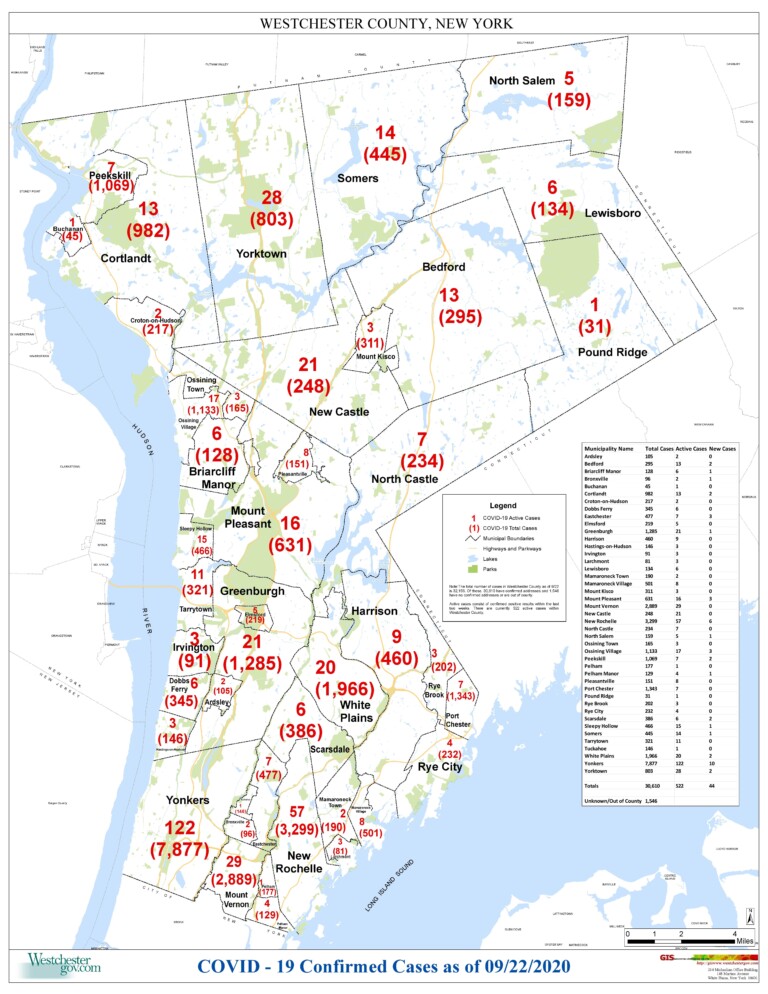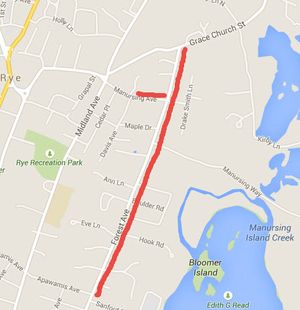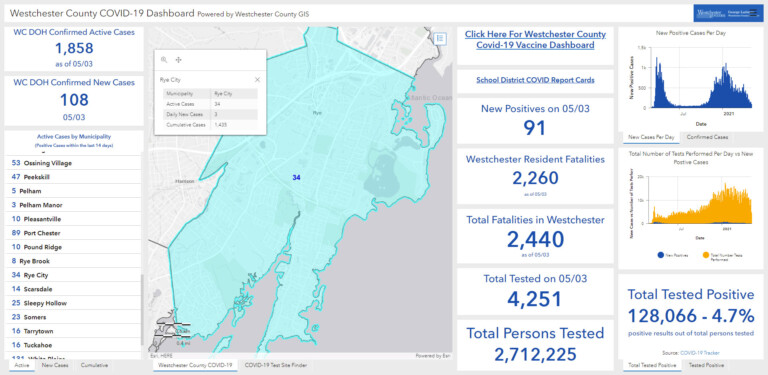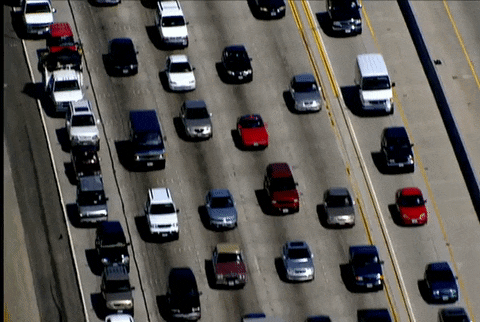Holding Court: The Real 311 on Notifying City Hall
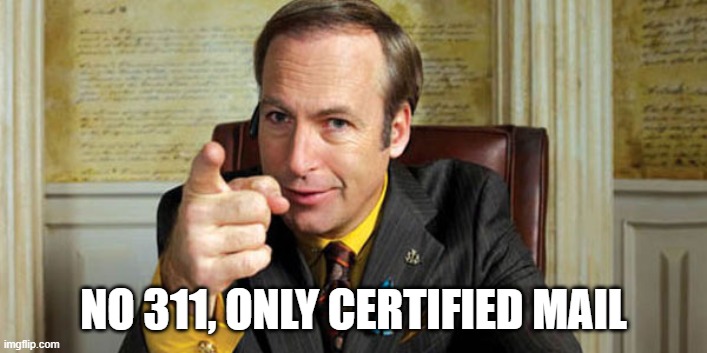
Holding Court is a series by retired Rye City Court Judge Joe Latwin. Latwin retired from the court in December 2022 after thirteen years of service to the City.
What topics do you want addressed by Judge Latwin? Tell us.
By Joe Latwin

It is the duty of government to protect the citizens and to not harm them. It is also the duty of government to protect the public from expenses. These duties recently collided before the Rye City Council.
Under General Municipal Law § 50(g), before any tort action may be filed, a written notice of claim may be required. On December 17, the Court of Appeals ruled that reports submitted via the City of Albany’s citizen request management system satisfied the requirements of Albany’s prior written notice of defect local law. Albany’s law required written notice of the defective before the occurrence resulting in damages or injury. Rye had a similar law. Rye also has a similar electronic reporting system where citizen’s information is recorded and tracked.
These prior notice law have a beneficial purpose – it allows the city to determine if there is a defective condition and the opportunity to repair the condition before someone is hurt. Generally, there could be no liability unless the city knew of the defective condition.
The State and its political subdivisions are generally subject to the same duty of reasonable care imposed on private landowners. The State, as a landowner, must maintain its property in a reasonably safe condition in view of all the circumstances, including the likelihood of injury to others, the seriousness of the injury, and the burden of avoiding the risk. However, the State “is not an insurer against every injury that might occur on its property and negligence cannot be presumed from the mere happening of an accident.
The standard of care in premises liability cases —”reasonable care under the circumstances” toward all persons on property. Foreseeability is an integral part of any analysis under this standard.
To establish foreseeability and a prima facie case against the owner, a plaintiff must be able to demonstrate that the City had either: (a) created the condition that caused the accident; or (b) had actual or constructive notice of the condition. To hold a property owner liable for injuries, one must establish that the property owner had actual or constructive notice of a defective condition.
Written notice, of course, serves as constructive notice to the City.
When the City gets notice of a defective condition, however it is received, the City, to protect its citizens from harm or the financial responsibility should investigate the condition and if dangerous, fix it. Otherwise, its citizens are put at risk.
Now, the Court of Appeals says the City may require written notice not electronic notice. On January 8, the Rye City Council considered a proposal to amend the local law to prevent electronic notice from being sufficient written notice.
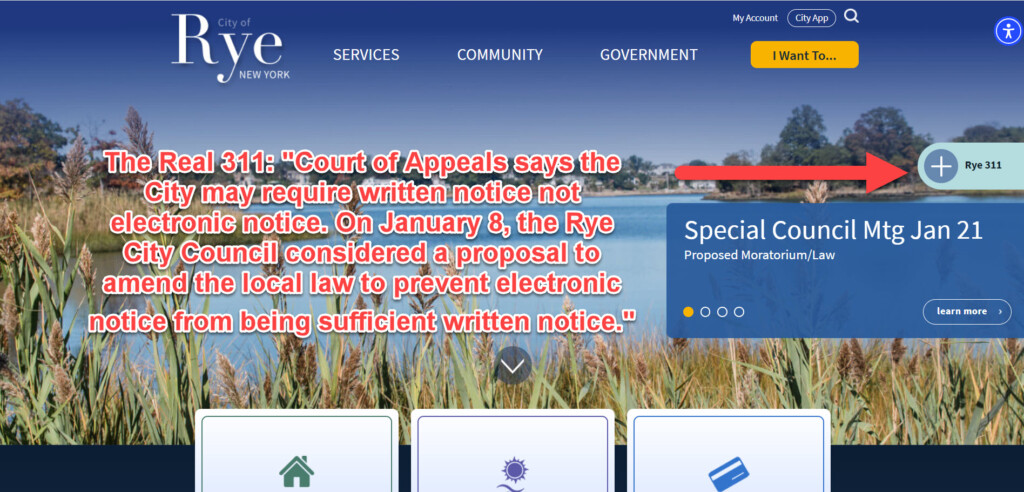
I suspect that even if the City adopts the law, it may be ineffective if electronic notice is provided. If a citizen reports a deep pothole by Rye’s electronic notice system, it is logged in, and an acknowledgement is sent to the complainant. It is routed to the appropriate department and any further communications and follow up action is noted in the system. Thus, the pothole report would be sent to DPW and routed to the highway foreman. The highway foreman should have an inspection of the site performed to verify the complaint. If valid, the foreman would note this in the system. At this point the City would have actual notice of the defect and should begin to repair it. Why wouldn’t it.
If someone is injured by the defective condition and the City claims it didn’t receive proper written notice, the injured party can obtain the records of the City’s tracking system by either a Freedom of Information Law request or by court disclosure. If the electronic notice shows the City had been notified of the defective condition b the electronic complaint system and acknowledged receipt of the complaint, that seems to show the City had actual knowledge of the condition obviating the need for written notice. If the City wants to ignore the electronic complaint system, the taxpayers should ask why we are spending money on it if we are going to ignore it?

